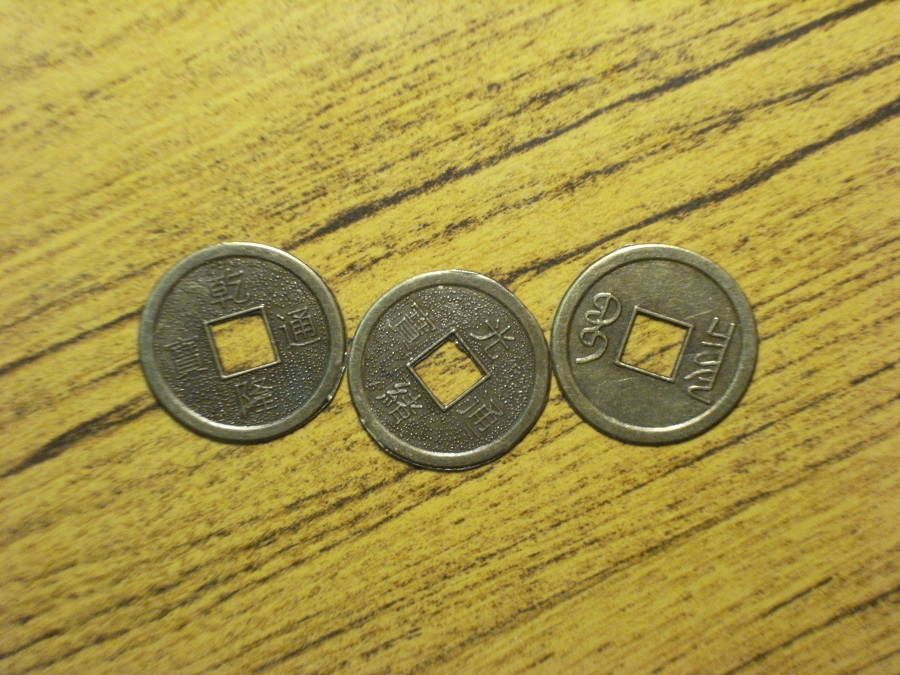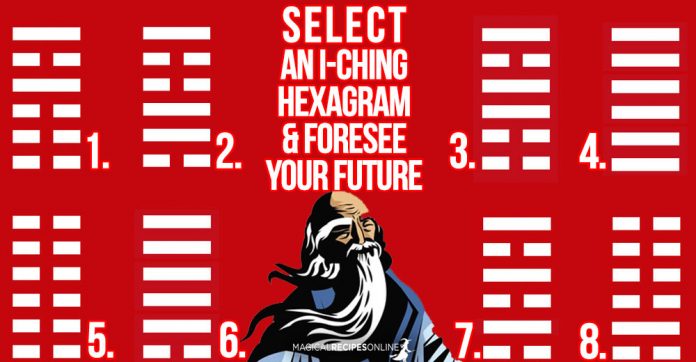The I-Ching (pronounced eee-jing) is one of the most important works of ancient Chinese literature. It belonged to the 5 Classics of the Confucian thought and it was very beloved to Chinese emperors.
The core of I-Ching was composed during the reign of Zhou dynasty. Scholars are not sure about the exact dating of the text. Probably, it appeared at the later Western Zhou period (825–800 BC). The original text bore the name Zhōu yì which meant “the Changes of Zhou”. Various Confucian philosophers added commentaries to the original text. These comments are called “Ten Wings”. In so doing, the text ceased to be solely a means of divination and it also became a philosophical treatise. Even Confucius himself said once: “Give me a few more years—if I have fifty more years to study the Book of Changes, then perhaps I, too, can avoid any great errors”. Still, we have to understand that the ancient Chinese mind did not sharply separate divination and philosophy. And of course, neither does any traditional spiritual approach.
In the West, I-Ching is also known as the Book of Changes. It became fairly known when the psychologist and theoretist on symbolism and dreams, Carl Jung declared, in his famous Foreword to the Wilhelm-Baynes I Ching (Redmond 2017, p. 370):
“The I Ching insists upon self-knowledge throughout. The method by which this is to be achieved is open to every kind of misuse, and is therefore not for the frivolous-minded and immature; nor is it for intellectualists and rationalists. It is appropriate only for thoughtful and reflective people who like to think about what they do and what happens to them”
Jung added that I-Ching cannot be explained through pure logic. This was a challenge to the raw rationalism of his time.
The I-Ching divination
Through the centuries, I-Ching was a major means of divination. The logic behind the future prediction is to generate a hexagram. There are 64 hexagrams. There were many ways to do the process, the most common nowadays is with three coins. These yield the numbers 6, 7, 8, or 9, corresponding to old yin, young yang, young yin, and old yang, respectively. Old yin is yin changing into yang (– — > —–) and old yang is yang changing into yin (—— > — –). New yang and young yin remain unchanged. The changing lines provide a second hexagram as well. This, consequently, meant a more detailed prediction and advice for the future.

Whether one believes in divination or not, many scholars consider its performance itself a meditative act. Redmond (2017, p. 331) notices: “In contrast to simply listening to a lecture or reading—whether from print or screen—practicing divination with the I Ching is an active process, consisting of both mental and physical activity. While the mind controls most physical activity, sensation and movement in turn affect the mind. Traditionally, consulting the I-Ching is done facing north as one would if conferring with a living sage. Incense is lit as a token offering; a few moments are taken to still the mind and concentrate the inquiry. Then a hexagram is selected, ideally with yarrow, alternatively with coins, beads or other methods. The selected passage is read, and if there are changing lines perhaps additional text is taken into consideration.”
Select a hexagram
Along with the divination process, one should also consider the form of the hexagram. Each configuration of yin and yang lines is not arbitrary, and it has a strong symbolic character. Hence, it appeals to our predilections.
Selecting a hexagram shows the tendencies that your personality will follow in the future. What you can do is to ask yourself a vital question and then select a hexagram. Your selection shows the way you are more prone to follow.
1. Jin 晉: Advance (Progress, Prosperity)
The hexagram shows an increase in wealth. Yet, in order to be benefited, we also have to offer. Through mutual generosity, everyone around us will prosper. It is our duty to contribute to this blessing of material and spiritual goods. On the other hand, egoism and conceit will block the flow of prosperity.
2. Gu 蠱: Decay, Work on what has been spoiled
This hexagram is associated with lechery, sexual excess and weakness attributed to passions. Still, the hexagram shows a way to work on everything that hampers our progress and keeps our spirit enslaved. However, the hexagram calls us to be extremely cautious in our steps because the danger of failure is present.
3. Lu 旅: The Traveler (The Wanderer)
Being a traveler means that you have a free spirit and you will decide to reconsider and change your life radically. Through curiosity and an adventurous mind, you can flourish. Beware, however, not to become a wanderer without roots. Trip should be spontaneous and free but not without a destination. Otherwise, you may get lost.
4. Qian 乾: Heaven (the Creative)
This is the first hexagram in the list of I-Ching hexagrams. The harmonic configuration of yang lines suggests that you will go through future life with constancy and creativity. You are a reliable person and success will be offered to you for your efforts. Action is favored.
5. Kun 坤: Earth (The Receptive)
This hexagram consists of 6 yin lines. Being throughout a more female and darker sign, it underscores the merits of patience and passive knowledge. We should let things flow their course the way they are supposed to flow. This should not be interpreted as blind compliance and passivity. It is more about understanding what the circumstances are and read the signs of the time. After you get this knowledge, you can carefully move on.
6. Gou 姤: Meeting (Coming to Meet)
The hexagram implies that we may have to refrain from certain people, even if we find them attractive and charming. Still, we should prepare ourselves for an interesting encounter that will transform our lives. This hexagram is about relationships. What we should do is to select the proper people that will assist us in our personal progress.
7. Wei Ji 未濟: River Not Yet Crossed (Before Completion)
The hexagram presents a critical moment in our life. We are about to pass a threshold, to “cross a river”. It is a challenging period that demands our whole attention and meticulous steps. If we will get “wet” while “crossing the river”, the damage will be done. The hexagram suggests that we think twice before we proceed, and we are absolutely sure about our decisions.
8. Shi 師: Troops (The Army)
The hexagram calls us to stand up and lead our lives in a decisive way. It is time for action and time to harvest the fruits of our efforts. The reference to an´army´ does not mean that we should be aggressive. On the contrary, an army presupposes discipline and hierarchy. On an individual level, this means that we have to shine in confidence and responsibility.
References:
For the translations of the hexagrams and for historical information we consulted the following, recently published, work:
Redmond, Geoffrey. 2017. The I Ching (Book of Changes) A Critical Translation of the Ancient Text. Bloomsbury Academic.
Phaethon

